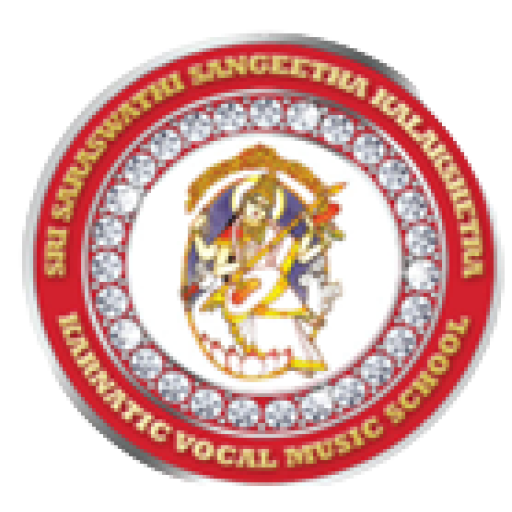Our Karnatic Vocal Classes for Special Needs Children prioritize self-expression, communication skills, and overall well-being through music. We provide individualized attention, a nurturing environment, and a curriculum that incorporates sensory stimulation and simplified musical concepts to make learning accessible. Our goal is to boost confidence, social interactions, and cognitive development while offering a safe and inclusive space for special needs children to explore Karnatic music.
At SSK, we are committed to providing inclusive music education opportunities for all individuals, including special needs children. Our Karnatic Vocal Classes for Special Needs Children are designed to cater to their unique learning requirements and create a supportive environment for their musical development.
We understand the importance of adapting teaching methods to meet the diverse needs of each child. We focus on fostering their self-expression, communication skills, cognitive abilities, and overall well-being through the power of music.
In these classes, we provide individualized attention, patience, and a nurturing atmosphere to ensure that every child can actively participate and progress at their own pace. Our curriculum integrates sensory stimulation, visual aids, repetitive patterns, and simplified musical concepts to make learning accessible and enjoyable for special needs children.
By embracing the transformative potential of music, our Karnatic Vocal Classes for Special Needs Children aim to enhance their confidence, social interactions, motor skills, and cognitive development. We believe in the inherent musicality within each child and strive to create a safe and inclusive space where they can explore and express themselves through Karnatic music.
If you have a special needs child who is interested in exploring the world of Karnatic vocal music, we warmly welcome them to join our program. Please reach out to us for more information on how we can support their musical journey.
Adapting Karnatic music education for special needs children requires a thoughtful and inclusive approach. Here at SSK we offer some considerations and prerequisites to make music education accessible and beneficial for them:
-
- Individualized Assessment: Each special needs child is unique, and their abilities and challenges vary. Begin by conducting an individualized assessment to understand their cognitive, sensory, and physical capabilities and limitations.
- Sensory-Friendly Environment: Create a sensory-friendly learning space. Ensure that the room is well-lit, quiet, and free from distractions that might overwhelm or distract the child.
- Visual and Tactile Aids: Utilize visual aids, tactile materials, and props to enhance the learning experience. Visual cues and tactile feedback can help children better understand musical concepts.
- Structured and Repetitive Learning: Special needs children often benefit from structured and repetitive learning. Break down complex musical concepts into smaller, manageable parts, and reinforce them through consistent repetition.
- Individualized Lesson Plans: Create individualized lesson plans tailored to each child’s strengths and challenges. Focus on their interests and abilities, adapting the curriculum as needed.
Flexible Teaching Methods: Be prepared to adapt teaching methods. Some children may respond better to visual cues, while others may benefit from auditory or kinesthetic approaches. Flexibility is key.
-
-
- Inclusive Group Classes: Consider offering inclusive group classes where special needs children can interact with their typically developing peers. This promotes socialization and can be motivating for all students.
- Patient and Supportive Learning Environment: Foster a patient and supportive learning environment where children feel safe to express themselves through music. Encourage experimentation and creativity.
- Regular Progress Assessment: Continuously assess the child’s progress and adjust the teaching approach accordingly. Celebrate their achievements,with Manollasini productions and recitals no matter how small, to boost their confidence and motivation.
- Patience and Empathy: Remember that progress may be slow, and setbacks can occur. Patience, empathy, and a non-judgmental attitude are vital for both instructors and caregivers.
-
By incorporating these prerequisites and approaches at SSK , Karnatic music education is made accessible and enjoyable for special needs children, fostering their cognitive, emotional, and social development through the power of music.
-
-
- The course aims to introduce students to the world of swaras through familiar tunes and songs, providing a gentle entry into musical concepts.
- Students engage in learning simple and easily accessible bhajans, emphasizing the “listen and repeat” approach for effective comprehension.
- The course focuses on refining lyrical pronunciation, chanting, and addressing challenging speech areas to enhance diction.
- Students are introduced to the fundamental concepts of Shruti (pitch) and Thala (rhythm), with the inclusion of tabla strokes during their class sessions.
- The curriculum includes memory-building exercises involving swaras and patterns. As students progress, they gradually explore Sarlee swarams, janataswarams, and other essential elements of Karnatic music, adjusted to their absorption and retention levels.
- The course prepares students for individual performances, boosting their confidence through the power of musical tunes, nurturing their ability to express themselves through music.
-
-
-
- The student exhibits the ability to replicate a tune accurately through attentive listening.
- The student cultivates a keen sense of rhythm and effectively demonstrates it.
- The student confidently performs several Bhajans and Shlokas with precision in tune, rhythm, and clear diction.
- The student showcases newfound confidence, successfully overcoming any stage fright or performance anxiety.
-
At what age can I start classes for my kids?
Do you take a trial class?
Is it usually a group class or an one-on-one class?
What languages are these bhajans?
Do you work to improve students' pronunciation?
Is it practical for a parent and kid to be a student at the same time?
Can a Beginner participate in Events conducted by the school?
Is there an extra charge for access to Google Classroom?
Is it necessary to have accompaniment on a percussion instrument like tabla or mridangam at Beginner level?
Book an orientation
SSK School Year ( Sep -May )
-
-
- 50 private sessions
- Duration 30 mins
- One-on-One Class
- Ages 3 and up
-



